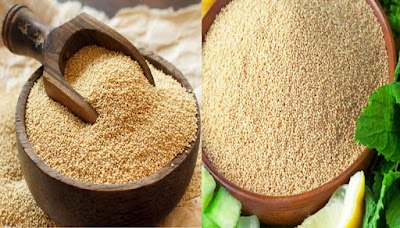In the world of ancient grains, amaranth stands out as a nutritional powerhouse that has been revered for centuries. Often considered a staple in the diets of ancient civilizations, amaranth has made a strong comeback in contemporary cuisine due to its exceptional health benefits. This blog post aims to delve into the unique and detailed health advantages that amaranth brings to the table.
Complete Protein Source
Amaranth is an exceptional plant-based protein source, particularly notable for its complete protein profile. It contains all nine essential amino acids, making it a valuable protein option for vegetarians and vegans. This makes amaranth an ideal addition to a well-rounded diet, supporting muscle development, repair, and overall bodily functions.
Rich in Essential Nutrients
Beyond its protein content, amaranth is a rich source of essential nutrients such as iron, magnesium, phosphorus, and manganese. Iron is crucial for oxygen transport in the blood, while magnesium supports muscle and nerve function. The combination of these minerals contributes to overall energy production, bone health, and the maintenance of a healthy immune system.
Heart Health Booster
Amaranth contains heart-healthy compounds like squalene, which has been linked to reduced cholesterol levels and a lower risk of cardiovascular diseases. The high fiber content in amaranth also aids in maintaining healthy cholesterol levels and promoting cardiovascular well-being.
Gluten-Free and Digestive Friendly
Amaranth is naturally gluten-free, making it an excellent alternative for individuals with gluten sensitivity or celiac disease. Additionally, the fiber content in amaranth supports digestive health by promoting regular bowel movements, preventing constipation, and fostering a healthy gut microbiome.
Anti-Inflammatory Properties
Amaranth contains unique phytochemicals and antioxidants, including polyphenols and flavonoids, which exhibit anti-inflammatory properties. These compounds help combat oxidative stress and inflammation in the body, potentially reducing the risk of chronic diseases associated with inflammation.
Weight Management Support
The combination of protein and fiber in amaranth contributes to a feeling of fullness, which can aid in weight management. Including amaranth in your diet may help control appetite and prevent overeating, supporting those looking to maintain a healthy weight.
Blood Sugar Regulation
Amaranth has a low glycemic index, meaning it has a minimal impact on blood sugar levels. This makes it a suitable option for individuals with diabetes or those aiming to regulate and stabilize their blood glucose levels.
Versatile Culinary Uses
Amaranth is incredibly versatile in the kitchen. It can be cooked as a grain, popped like popcorn, or ground into flour for baking. Its mild, nutty flavor makes it adaptable to various dishes, from breakfast porridges to salads and main courses.


.jpg)
.jpg)


0 Comments
Please do not inter any spam link in the commet box